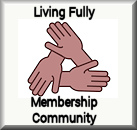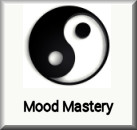I sometimes get couples in my office that have gone a long way down the road towards practicing the predictors of divorce. They are discouraged and maybe one person in the partnership has got their foot out the door. It can seem overwhelming to consider what would need to be done in order to put things back together so that they can connect and be a couple. I want to give you hope today. It is not over until it is over. Slow everything down. There is so much at stake for now and in the future riding on this decision. I like the illustration that John Gottman gives when asked whether these couples can really change and put things back on track. He likens it to sending a rocket to the moon. If you are off by just a minute amount in the trajectory, you will miss the moon. By correcting just a small amount, you will hit the moon.
That is why he wrote, “The Seven Principles For Making Marriage Work” (if you have not read it – it would be a good place to start). You do not have to overhaul the whole relationship but just use some correction tools that are meaningful. Sue Johnson’s research shows that you do not have to be perfect in your relationship but you do have to connect enough to have a secure attachment. By this time, you likely have viewed not just the present but have revised the whole relationship history to be negative. You believe you have “tried” everything. You believe your problems are severe – you are a total mismatch. You may experience loneliness. At this point do not try to solve things on your own. Go and see a marriage counsellor. Find a way inside yourself to make this a total necessity in your life to make the changes needed. Anytime we have a circumstance in our lives, we need to see it as an opportunity to upgrade ourselves and make the necessary changes inside of us. While you are waiting for professional help, you can get ready by:
1. Looking at memories that were positive in your relationship. Be willing to see the positive.
2. Talk together about what it has been like for each of you, focussing on yourself (not blaming) in the telling and focussing on the other in the listening (empathetic understanding). Share your heart. This is not for the feint – it takes courage. Find it within. It is there.
3. Apologize for what you are able to apologize for.
4. Commit to your partner to do what it takes to make things work between you. Not just for today but a new way of being together.
5. Read Chapman’s book, The 5 Love Languages, and start practicing this to bring the walls down.
6. Read Sue Johnson’s book, “Hold Me Tight” or “Love Sense”. This helps you to know what is at stake for you and helps to give you permission to want more from your relationship.
7. Read John Gottman’s book, “Seven Principles for Making Marriage Work”
Attend your marriage Counselling with an open heart and mind and do the changes necessary to course correct. Part of being a healthy human being is being able to pivot in life when necessary without ditching everything. Go forth and be wonderful today!
Healthier Marriages Posts
Overwhelmed by the Challenges in Your Relationship?
Repair Attempts
Repair attempts are so important in a relationship and are difficult for us to do. What Gottman found in in his 40 some years of couple research is that what most distinguished couples who were masters of relationships and those who were disasters of relationship was the way they handled conflict and repair attempts. Those who were masters at their relationship could deescalate the negative emotion in the conversation when the conversation went off track they could quickly make repairs. I remember years ago when I was in training watching hours of couples who were arguing (interesting pastime…). I remember how some couples were so good at deescalating by using humour or by distraction. I particularly remember one couple who were having an argument and right in the middle of it, the guy said to his partner, “Oh I really like your shoes – are they new?”. She responded that she really like them too and that yes they were new. When they continued their argument, the heat had gone out of their battle. So, if you are having difficulties in the area of arguing where might you look in order to grow this part of your relationship?
A great quote from John Gottman’s book, 7 Principles for Making Marriage Work, is “Whether a repair succeeds or fails has very little to do with how eloquent it is and everything to do with the state of the marriage.” (P41) What that means to you is that if your repair attempts are not working, look to the foundations in the marriage first, rather then the repair attempt structure itself.  The foundations include all that would come under friendship. Do you take the date night in your relationship seriously? Do you know your partner’s struggles and wishes for life? Do you know and empathize with their daily work life either away or at home? Do you know what they worry about especially at night? What hurts them in the world? Do you provide a place of safety for them? Are they able to talk to you and be understood – not fixed. Do you touch them often to reassure them – you are there for them? It is in these circumstances that we are able to make better repairs. The reason for this is that the conflict does not have the same importance as the relationship does. It becomes “just an issue”, not a threat to the relationship. Remembering that sometimes issues get resolved right away and sometimes they evolve and change over time or we change and the issue changes. Think on this in your relationship today. Go forth and Be Wonderful!
The foundations include all that would come under friendship. Do you take the date night in your relationship seriously? Do you know your partner’s struggles and wishes for life? Do you know and empathize with their daily work life either away or at home? Do you know what they worry about especially at night? What hurts them in the world? Do you provide a place of safety for them? Are they able to talk to you and be understood – not fixed. Do you touch them often to reassure them – you are there for them? It is in these circumstances that we are able to make better repairs. The reason for this is that the conflict does not have the same importance as the relationship does. It becomes “just an issue”, not a threat to the relationship. Remembering that sometimes issues get resolved right away and sometimes they evolve and change over time or we change and the issue changes. Think on this in your relationship today. Go forth and Be Wonderful!
Facing 2018 Together
At its best, we can use this closing of the year and the beginning of 2018 to see ourselves and our partner with new eyes, and to meet the we-ness that we have travelled the year together with. To face our challenges and regrets together and our joys and gains together with a sense of love and compassion and curiosity in the face of all that did or didn’t transpire in the year 2017. Take some time together to look at the wisdom you gained by living your lives side by side and individually. Honour the sense of growing wiser, learning the lessons of life and relationship and gaining solid new insights as a result of living your lives together. Become more humble as you reflect on the things you believed or bought into that weren’t true, and the pain and rewards of finally letting go of those. Face the regrettable times when you weren’t there and did not show up when love called you to do so for your partner. Bring to your awareness the times you did show up for each other and the deepening of connection that brought to you. Spend time in gratitude for all you have experienced and have in your lives together. Reflect on the potential expansiveness and graciousness that deliberate love has to begin anew in 2018. Reflect on the beauty of the imperfect that represents you and your partner in relationship and what light those imperfections make in a call towards your personal and relationship change in the year 2018.
New Years Opportunity
New Years Blog
Life and its inevitable circle of opportunity and loss and can be challenging to embrace, especially at Christmas. I lost a family member this season and am in the place of grieving right now. I am reminded once again that every circumstance can move us forward and today I came across something from John O’Donahue, a writer whom I love. It is a great New Year’s message and I pass the challenge on to you. It comes from his book, To Bless the Space Between Us.
May I have the courage today
To live the life that I would love
To postpone my dream no longer,
But do at last what I came here for
And waste my heart on fear no more.

There are so many that I see in my office who are afraid of what life might bring. They are even afraid of declaring a purpose or a goal for their life in case it is hard to do or that they may not do it perfectly. Right now our world needs people with courage who can bring joy, love and to live out the gifts they were given. Give this some thought as a couple and as individuals as to how you might create some habits that really make your purpose and passion happen this year. Put this on your calendar. Talk about how you might support each other in making 2018 a significant year for you. Go forth with courage and be wonderful today.
Baggage versus Luggage – How will you live?
I have had lots of clients just recently struggling with their relationships because of past hurts and issues. They may be living in the shadow of their childhood injuries or a separation or divorce. It is so present for them that they can easily recite chapter and verse of their injuries as they come to see me. It is hard to have a vision of your life that is clear when it is packed with past baggage. It is also hard to access our own part in our present lives when we are focused on our partner’s injuries towards us. It is particularly difficult when there is a second marriage, for instance, and there are children that each have. When I was in university I was part of a huge research project for this particular group of people. We were looking at the issues they had a hard time with and the effect on their stress levels and health. It was not good news. Differences around kids that are not our own yet we live with them, are so close to our heart and can easily become issues that separate us and become a part of the baggage in the relationship. People will also get stuck in their childhood wounds that they carry into adulthood. This can be challenging when you still have relationship with your parents and they trigger you to your past with their continuing behaviour. However, there comes a time when it is important to empty our filled knapsack that we are carrying around on our backs and pick up a great piece of new luggage and pack it up with new skills and new choices for positive emotions. We get to choose our emotions and to effect our emotions towards the positive. Many adults still haven’t worked that out. They focus on their circumstance and how bad they are and were. They listen to the news and get more proof of how bad life is. They listen to the group opinion on social media and gain more proof of how bad life is. How might you change this? First make the decision you would like to live without your baggage. You make up your mind to choose some great luggage to travel with into the future. Next you do all the things I have talked to you about before. You make a choice in the morning to look for things to be grateful for. You make a choice to bring good into your world today (can be something small like letting people in for a lane change in the traffic). You choose to bring joy into your life and into the lives of those you love (you generate this joy by your thoughts). You choose to be
We get to choose our emotions and to effect our emotions towards the positive. Many adults still haven’t worked that out. They focus on their circumstance and how bad they are and were. They listen to the news and get more proof of how bad life is. They listen to the group opinion on social media and gain more proof of how bad life is. How might you change this? First make the decision you would like to live without your baggage. You make up your mind to choose some great luggage to travel with into the future. Next you do all the things I have talked to you about before. You make a choice in the morning to look for things to be grateful for. You make a choice to bring good into your world today (can be something small like letting people in for a lane change in the traffic). You choose to bring joy into your life and into the lives of those you love (you generate this joy by your thoughts). You choose to be  accountable to yourself as you review your day each night for these things. These three ideas belong in that new luggage. Best wishes for a life of new fullness!
accountable to yourself as you review your day each night for these things. These three ideas belong in that new luggage. Best wishes for a life of new fullness!
Letting Go to Create More Joy in Your Relationship with Your Life and Your Partner
Fall brings to mind letting go. The leaves are turning a glorious colour and the trees are letting go as the temperatures are getting cooler. It is a good time for us to evaluate what beliefs, mindsets or habits that we might need to let go of in order to live more connected and happier lives. Joy is such an important emotion in our lives and it is one that we can choose. We often get into difficulties with our patterns in life. When this occurs, we have a negative response in our lives and then we follow with a negative disconnecting behavior. You know the responses that you would like to change in your life. When I did this exercise this fall, I found that I needed to let go of my resistance to the work of attaining a goal that I really want and value. This was not obvious to me and it came to me as I was mediating, praying and doing a mandala drawing. To let go, we need to look below at what beliefs might be driving those responses (for instance what belief was driving my resistance?) and keeping you and I from joy. Increasingly we know that positive emotions impact our health and every part of our lives. Fall is a great time to make room for new thoughts and beliefs that allow for new behavior patterns and new emotions such as joy to be a part of our lives.
There might be an activity in your life that takes your time and energy and sucks the life blood from you and although it served you well before, it might be time to let it go.  This can be hard. I find letting go of things that I have enjoyed in the past but are not good for today more difficult then some of my friends who do this more easily. Look at all the parts of your life and what takes your time and energy. Is it still a good idea to continue or is it time to make a change and use your energy elsewhere? Talking this out with your partner is often helpful and of course, necessary when it includes their lives too. Sometimes it takes time for you and your partner to come together on a decision to let go that involves both of you. Don’t try to come to a decision quickly. Let there be discussion, listening and understanding. Do this over time until you can come together on your decision. Your readiness may not match and your partner may need more time. Remeber the value of letting go allows us to put something else (a positive emotion or maybe a great new opportunity!) in its place. Live life fully by allowing letting go to make room for positive and life giving new moments.
This can be hard. I find letting go of things that I have enjoyed in the past but are not good for today more difficult then some of my friends who do this more easily. Look at all the parts of your life and what takes your time and energy. Is it still a good idea to continue or is it time to make a change and use your energy elsewhere? Talking this out with your partner is often helpful and of course, necessary when it includes their lives too. Sometimes it takes time for you and your partner to come together on a decision to let go that involves both of you. Don’t try to come to a decision quickly. Let there be discussion, listening and understanding. Do this over time until you can come together on your decision. Your readiness may not match and your partner may need more time. Remeber the value of letting go allows us to put something else (a positive emotion or maybe a great new opportunity!) in its place. Live life fully by allowing letting go to make room for positive and life giving new moments.
Still Trying to Change Your Partner?
“The beginning of love is the will to let those we love be perfectly themselves, the resolution not to twist them to fit our own image. If in loving them we do not love what they are, but only their potential likeness to ourselves, then we do not love them: we only love the reflection of ourselves we find in them”
― Thomas Merton, No Man Is an Island
What a great truth! Loving well can be difficult for us to do. I notice that in sitting with couples that one or both partners want their partner to change in some way and have let their partners know over and over regarding this change. I am not talking about major issues such as violence or addictions which must change in order to have a marriage. I am talking about the everyday issues that can add up and distance us if we let them. A small example might be that one partner believes that the shoes belong in the closet where they do not trip over them when they walk in the door or that when their partner has finished with their tea, they need to put their cup in the dishwasher. This may happen for years as it becomes a power struggle between the couple and interferes with their view of their partner and their love connection. We forget that our partner is not us and that they do not necessarily share our values about shoes and cups in dishwashers etc. Yes, we do need to work some of these issues out satisfactorily but they cannot come between us in a way that we are trying to have our partner become who we are. Spending constant time trying to change our partner over years begins to erode the love that we have together. Spending time problem solving over these issues or getting some of what we may want can be helpful. For instance, purchasing a basket by the door that your partner can throw his or her shoes in might be a partial solution. Picking them up yourself in a spirit of love can work. Acceptance of your partner’s differences is the key. These issues become even more difficult when there are kids from another relationship and you are trying to set some boundaries that they are not used to. Spending more time affirming and enjoying who are partner is (or our partner’s kids) helps to cement attachment. Changing the way we frame our partner and enjoying their quirks and differences as separate from the way we are, increases the satisfaction in our relationships. It creates the kind of safety that over time, helps our partner want to change those very small details of our lives together. Write out the above quote and see where you might make a difference in this area of your loving.
our values about shoes and cups in dishwashers etc. Yes, we do need to work some of these issues out satisfactorily but they cannot come between us in a way that we are trying to have our partner become who we are. Spending constant time trying to change our partner over years begins to erode the love that we have together. Spending time problem solving over these issues or getting some of what we may want can be helpful. For instance, purchasing a basket by the door that your partner can throw his or her shoes in might be a partial solution. Picking them up yourself in a spirit of love can work. Acceptance of your partner’s differences is the key. These issues become even more difficult when there are kids from another relationship and you are trying to set some boundaries that they are not used to. Spending more time affirming and enjoying who are partner is (or our partner’s kids) helps to cement attachment. Changing the way we frame our partner and enjoying their quirks and differences as separate from the way we are, increases the satisfaction in our relationships. It creates the kind of safety that over time, helps our partner want to change those very small details of our lives together. Write out the above quote and see where you might make a difference in this area of your loving.
Restorative Vacations
Lots of families are heading out on vacations over the next month or so. Sometimes these vacations turn out well and sometimes they don’t. Most of the challenges are about hidden expectations. One person wants to have mostly a relaxing time, with unplanned adventures. The other person wants a planned vacation where the most is made of the time available. Unfortunately, they do not voice their expectations to each other in a way and at a time that they can hear each other. Set aside the time to talk together and don’t just talk about the logistics of the vacation, when you are leaving and returning etc. – we are good at that. At the minimum explore what each of you are thinking and feeling in the following ways.
- What do you want from this vacation that is very important to you?
- How do you want to feel when you return home?
- How much alone time do you want – how much connection time do you want?
- How much effort do you want to put out? Ie. How often to eat out or eat in or?
- How much money do you want to spend?
If you have kids:
- What were you thinking might be good for the kids?
- How much travelling time at once?
- How can we make the vacation a time that meets their needs as well?
- How will we help each other with the kids?
The other part of vacation time is your relationship. Decide together:
- Will we set aside some time to talk about issues we have difficulty making time for in our regular life? If so, how can we block that time out and make sure any negativity does not bleed into the rest of the holiday?
- Will we commit together to make all efforts to be positive on the holiday in order to create a wonderful holiday memory? For instance, don’t sweat the small stuff, let things go.
- Will we commit to not becoming the Bickerson’s on the holiday and leaving arguments for another time?
- Will we make efforts to connect with each other? Touching, handholding, checking in, meeting each other’s eyes while listening, making love etc.
- Will we commit to sharing our gratitude for what our day holds every day?
- Will we create moments of shared laughter together?

You can think of lots more. Planning for success means you are much more likely to have it! Talk about these things together and more that pertain to who you are on holidays. Have fun, take time to nurture your soul. Go forth and be wonderful!
Sending you love and encouragement – Lynda
 Once you have some practice, you will find it easier to understand yourself in this regard. At first you may not do this well each time. If you don’t do this well in the moment and regret your secondary emotional response, make sure your repair with your partner includes sharing what was really going on. If you are the hearer of these emotions, you will likely relate to these deep emotions. Your response is important. Make sure you honour the gift of your partners sharing by creating emotional safety and treat the gift with a gentle and reassuring response. This creates continuing attachment security in your relationship which is what we all long for.
Once you have some practice, you will find it easier to understand yourself in this regard. At first you may not do this well each time. If you don’t do this well in the moment and regret your secondary emotional response, make sure your repair with your partner includes sharing what was really going on. If you are the hearer of these emotions, you will likely relate to these deep emotions. Your response is important. Make sure you honour the gift of your partners sharing by creating emotional safety and treat the gift with a gentle and reassuring response. This creates continuing attachment security in your relationship which is what we all long for.




